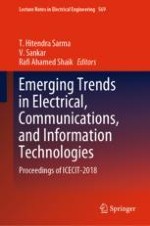2020 | OriginalPaper | Chapter
Techno Economic Analysis of Hybrid Renewable Electrification System in Different Climatic Zones
Authors : Murugaperumal Krishnamoorthy, P. Ajay D. Vimal Raj, S. Suresh, Karuppiah Natarajan
Published in: Emerging Trends in Electrical, Communications, and Information Technologies
Publisher: Springer Singapore
Activate our intelligent search to find suitable subject content or patents.
Select sections of text to find matching patents with Artificial Intelligence. powered by
Select sections of text to find additional relevant content using AI-assisted search. powered by
